A plateau doesn’t only occur with weight loss, it will happen in many other aspects of your body (muscle gain, cardio training, etc.), simply because your body adapts. After a few months of intermittent fasting, you might reach a plateau and feel unable to lose more weight, but there are many ways to break a weight loss plateau.
To break a plateau on intermittent fasting, you need to stress your body, just like you would stress your muscles when working out. It has adapted to your eating pattern and diet. It’s not all about eating less or less often, sometimes eating more, getting carbs, taking a break in intermittent fasting, can have a huge effect on a plateau.
But first, what exactly happens in your body when you reach a plateau and are there effects specific to intermittent fasting that you should take into account?
Why Does A Weight-Loss Plateau Happen?
Are You Really On A Plateau?
A plateau in weight-loss happens when your body’s not burning fat anymore. I mentioned weight-loss, but it’s really fat-loss that we are interested in.
Meaning you shouldn’t think you’ve reached a plateau after two weeks of implementing a diet and losing a few pounds. Because when you’re changing your diet, you most likely will lose tons of water.
I have a friend who’s tracking it’s weight and goes on the scale every day. Sometimes twice a day, seeing he lost two pounds on Wednesday when he ate a huge meal and gaining 3 pounds the next while eating salad.

I’m trying to tell him it makes no sense to obsess about the scale, 95% of these fluctuations come from water-loss and water-retention.
If you start the ketogenic diet for example, when you’re glycogen stores get depleted, your body will lose tons of water. The impressive weight-loss results when starting keto on the first week mostly account for water.
So if you’ve just started intermittent fasting or any diet, see crazy results for two weeks, then none for one, don’t panic, you’ve not reached a plateau yet, your body’s adapted to the new diet and now you’ll start burning actual fat.
How Does It Happen?
Your body is great at adapting to any type of condition. One of its main goals is to maintain homeostasis in the body.
Homeostasis is the ability you’re body has to maintain a stable internal state, despite changes occurring outside of it. Every living organism has to be able to maintain this internal state at all costs.
A huge spike in blood pressure, you’re temperature suddenly dropping, this can’t happen without putting a strain on your body and even damaging your internal organs. The body has to maintain as much stability as possible to survive.
This means that your body is a master at adaptation. And after a while, you’re body will adapt to the diet you’re following.
If you’re eating too much, your metabolism will speed up and if you eat too little, your metabolism will slow down. When you’re doing calorie deficit, you’ll lose weight at first of course, but after a while, the body will adapt itself to fewer calories.
It’ll be able to function without as much because of the slowed metabolism and other factors. Once this adaptation happens, weight-loss can plateau. This is also called adaptive thermogenesis.
What’s Specific To Intermittent Fasting?
You might be confused here because I mostly talked about calorie deficit and the body adapting to fewer calories.
When you’re intermittent fasting, of course, you’re putting a calorie deficit on the body, but that’s not the same as eating 3 to 5 times a day while counting calories.
You’re not effectively trying to get fewer calories, you’re trying to eat less often, shortening your eating window, in order to train your body to burn fat. You’re not forcing your body to adapt to fewer calories to function.
Intermittent fasting is not about calories in, calories out, it’s about hormones. You’re lowering your insulin levels when eating less often, you give your body time to adapt to fat as energy, that’s the whole concept.
Some of the things I’ve said apply to IF too, because you’re effectively getting used to fewer calories, but there could be another side-effect of intermittent fasting that could slow down weight-loss.
It’s how intermittent fasting might affect your thyroid.
Intermittent fasting might be slowing down the functioning of the thyroid gland. The thyroid plays a huge part in the body and one of its roles is to regulate energy metabolism and thermogenesis.
Fasting will impact your metabolism and the way your body uses and converts energy, this means it will have an impact on your thyroid.
Thyroid hormone, called T3, is crucial for the body to use energy. But when you’re fasting, your body will reduce T3, in order to preserve as much energy as possible.
This stress in the body is not a big deal, and after a while, you will adapt to IF and the thyroid too.
But this stress impacting T3 could reverse the metabolic effects of fasting and effectively start slowing down your metabolism.
1. Track What You Eat
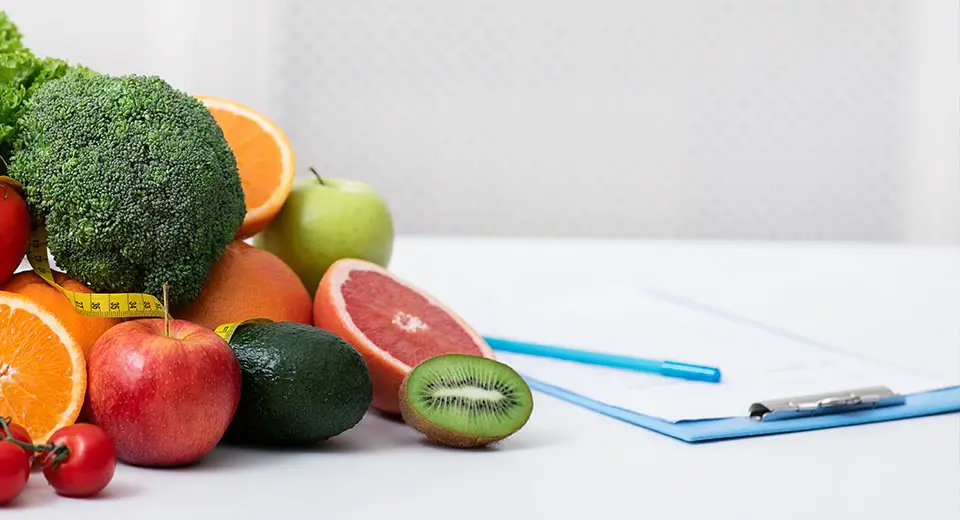
The very first thing I would advise you to do on a plateau is to track what you eat. You don’t have to be extra thorough, just be mindful of the way you eat.
Intermittent fasting is not a conventional diet, you will eat less often, the guidelines are to eat healthy foods, sure, but there’s not much else you have to do.
The only thing that can be ruining your weight-loss progress if you strictly keep to your eating window, is what you eat during this eating window.
You might not even have noticed that intermittent fasting made you change some of your eating habits. Sure you now skip breakfast, you don’t get a sugar-filled orange juice in the morning, but aren’t you compensating some of these cravings elsewhere?
After a while on intermittent fasting, while still reducing carb intake on an everyday basis (far from keto or Atkins though), I realized that on the days I wasn’t getting many carbs, I craved for sweets after a meal.
I grew the habit of having one piece of chocolate or candy with my coffee. And on occasional days when I actually get some carbs with my meal, the craving disappears.
Cutting this one piece of candy I get almost every day could be enough to shake a plateau!
I’m not saying you can’t treat yourself with some sugar or alcohol on intermittent fasting. For me, that’s kind of the point, keeping lean while not being too strict on your eating habits.
But if you’re really trying to lose weight on intermittent fasting, tracking what you eat will make you discover bad habits, too many carbs here and there, high-protein meals, snacking, etc.
Try shifting or removing those eating habits and you might break your plateau faster than you’d expect.
2. Change Your Eating Pattern

I often say that in my articles, but intermittent fasting is all about habits. It’s not something you have to constantly be mindful of like counting calories or doing low-carb diets.
You’ll have to be mindful at first of course, but once the lifestyle is implemented, you’ll follow it without thinking about it much, since you won’t be hungry during your fasting window and, most of the time, you will be when it’s time to eat.
So you will have created a habit. As I already stated: the body adapts. It’ll adapt to this habit, but it’ll also adapt to your weight-loss and screw up your progress.
If you can do it, try changing your eating pattern. It’s not always easy to do depending on your lifestyle. But you don’t have to stick to it to very long, the idea is to stress the body and force him to get out of its comfort zone.
This means if you’re doing 16:8 intermittent fasting and you don’t eat from 8 pm to noon the next day, skipping breakfast, try skipping dinner for a while.
You finish your lunch at 1 pm and you don’t eat again before breakfast. This way you could even reduce your eating window from a few hours.
This can be hard since if you’re used to eating dinner, you’ll get pretty hungry in the evening. But again, you don’t need to do that for very long, a couple of weeks might be enough.
When getting back to your usual eating pattern, this could be enough to get through your plateau.
3. Add Cheat Days
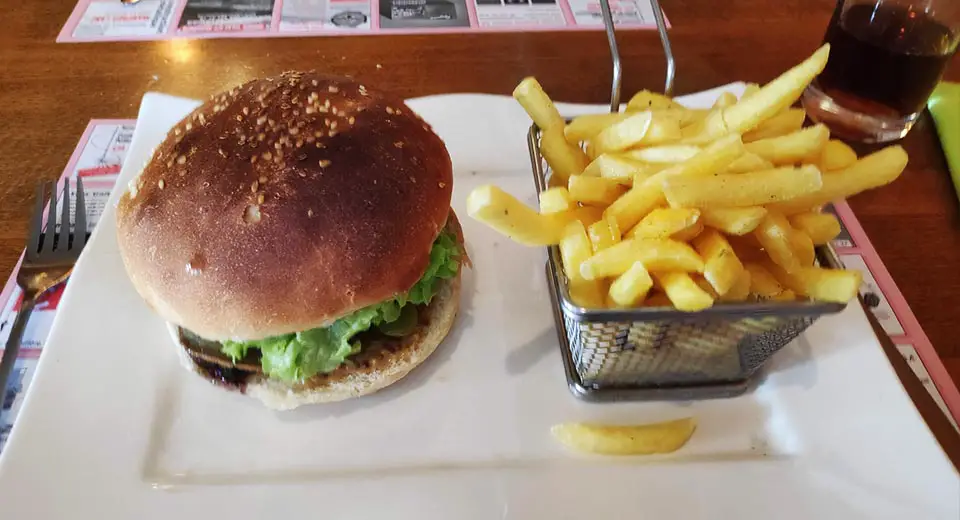
Cheat days are not all created equal. Generally, people see them as carb-loading days, big greasy breakfast, junk food for lunch, and ice cream for dinner.
When it comes to intermittent fasting, a cheat day is simply a day when you eat three meals. Generally, I do cheat days on holidays (sometimes for the whole holiday, oops!), or on weekends.
If you’re following IF religiously every day, but still go crazy with food and alcohol on weekends (like I often do), that’s not a great way to lose weight, but that’s not real cheat days either since IF is not restricting what you eat.
So doing the occasional breakfast, lunch, and dinner, not overdoing it, simply doing a normal IF “cheat day” one or two times a week for a few weeks to try to break your plateau could work.
But if you’re already doing cheat days one or two times a week and plateauing, you should try to stop this. It could be the reason you’re not losing more weight.
Cheat days can also become part of your eating pattern and with the way you eat, the weekly intermittent fasting, and your cheat days, you might simply have reached your maximum weight-loss potential.
Doing cheat days every week is not putting a lot of stress on your body, but doing them occasionally could be just enough to make you break through a plateau.
There are many studies on cheat days, generally in a conventional carb-loading way, but I couldn’t find science on the effect of a normal eating day inside of an IF lifestyle.
There’s a hypothesis on cheat days and its effects on leptin levels. Leptin is the hormone responsible for signaling satiety, it’ll regulate energy intake and tell your body to stop eating when you’ve had enough.
This study shows that short-term carbohydrates overfeeding could ramp up leptin levels by up to 30%. This doesn’t mean doing those types of cheat days are good for the body, but it’ll help with reducing hunger afterward.
4. Take a Break From Intermittent Fasting
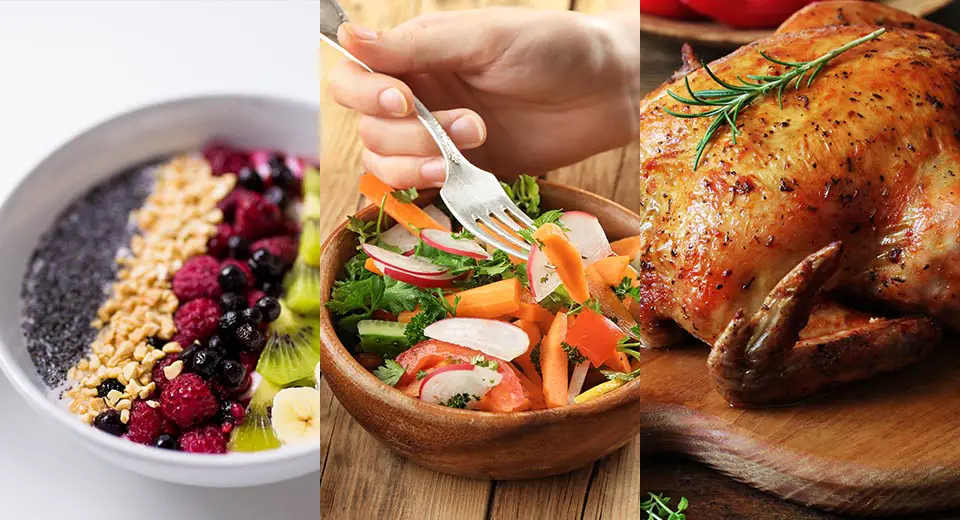
Following the idea of cheat days, eating normally again for a couple of weeks, and getting back to IF could also be a huge deal for your weight loss progress.
There was a study conducted on 47 obese men, divided into two groups, aged between 30 to 50, who had to follow a 16-weeks diet.
The first group would do it continuously for 16 weeks, the other group would do it intermittently. They would cut down calories for two weeks, eat normally for two weeks (still being supervised, the idea was to keep their weight stable).
The second group would follow this pattern for 30 weeks, in order to be effectively dieting for 16 weeks total.
The intermittent dieters (hey that’s me!) loss on average 31 pounds. The other group… 20 pounds. Moreover, six months later, the intermittent group fat loss total was 27.1 pounds, against 9.2 pounds in the control group.
I’m saying it again, intermittent fasting is not the same as counting calories, but you’ll be effectively reducing caloric intake by eating less often.
So you might still experience the effect of adaptive thermogenesis, reducing your body’s resting energy expenditure, which will make weight loss harder. This survival reaction could be alleviated by returning to normal eating habits.
I would certainly not advocate trying to follow this type of intermittent diet, two weeks on, two weeks off, because I think it would be hard to pull off and that wouldn’t be very healthy, you’re body would be crazy.
But why not give it a try if you’re on a plateau?
Stick to healthy foods of course and plan to be back to your strict intermittent fasting habits after those two weeks, and that could get you amazing results.
5. Cut Down On Carbohydrates

If you’re interested in intermittent fasting, you must have heard about low-carb diets, such as Atkins or Ketogenic diet.
They are insanely famous because they’re really, really effective at weight loss and some type of low-carb diet is often combined with intermittent fasting to help lose weight, treat obesity, or even type 2 diabetes.
If you implement intermittent fasting without changing much of the way you usually eat, the first thing I would advise you to is to cut down sugar and refined carbs to a minimum.
By tracking what you eat, you might be able to find hidden sugars in certain processed foods you eat or that X or Y is full of refined carbs.
There are many studies that have been conducted on low-carb diets, they all prove that you can lose weight, promote fat burning, boost your metabolism, even more than with just IF.
I know a strict low-carb or keto diet can be very hard at first and is not an easy one to follow while keeping a social life. If you’re serious about your goals, you should definitely look into low-carb diets.
But you can also just cut down carbs on an everyday basis. Try not eating bread, pasta, or rice during weekdays, and also stay away from any type of sweets.
And again, this doesn’t mean you always have to eat that way now, you can try making a habit of reducing carbs, or simply reduce them for 2-3 weeks and see if that’s enough to kick you out of your plateau.
6. Eat More Good Carbohydrates
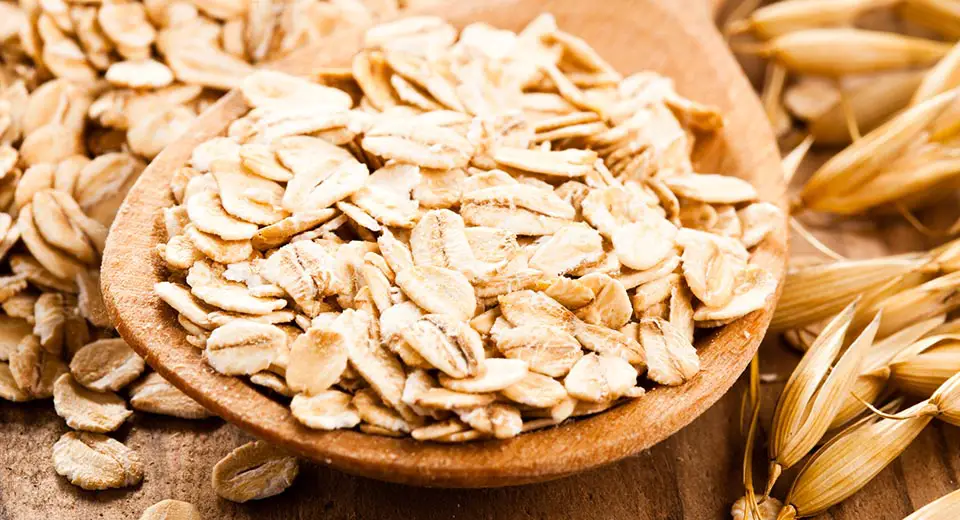
Okay, this might seem counterproductive “cut down the carbs!”, “get more carbs!”, “bend before me!”.
Let’s put the emphasis on good carbs. What I mean by eating more good carbs is to replace your usual carb intake with good, non-refined, carbs.
You’ll find good carbs in most vegetables, fruits, legumes such as lentils or beans, nuts, seeds, whole grain (oats, quinoa, brown rice), and potatoes.
What’s great about good carbs is that it’s healthy, often fiber-rich and it’ll help leave you satiated quicker. Try eating a plate of pasta, against a bowl of lentils, you’ll see what I’m talking about.
Yes, good carbs will raise insulin levels too if you eat enough of them. But carbs itself is not responsible for obesity. Refined carbs and sugar surely are linked to it, but we’ve been getting whole carbs for thousands of years.
Studies such as this one state for example that eating whole-grain may reduce risks of mortality due to cardiovascular disease.
Getting the good carbs, replacing bread with beans, white rice with quinoa, will be easier than cutting down carbs drastically, it’ll help reduce cravings since you’ll be having some carbs, while still being full of fibers that leaves you full.
These types of changes might be enough to get you out of a weight-loss plateau.
7. Try High-Resistance Training
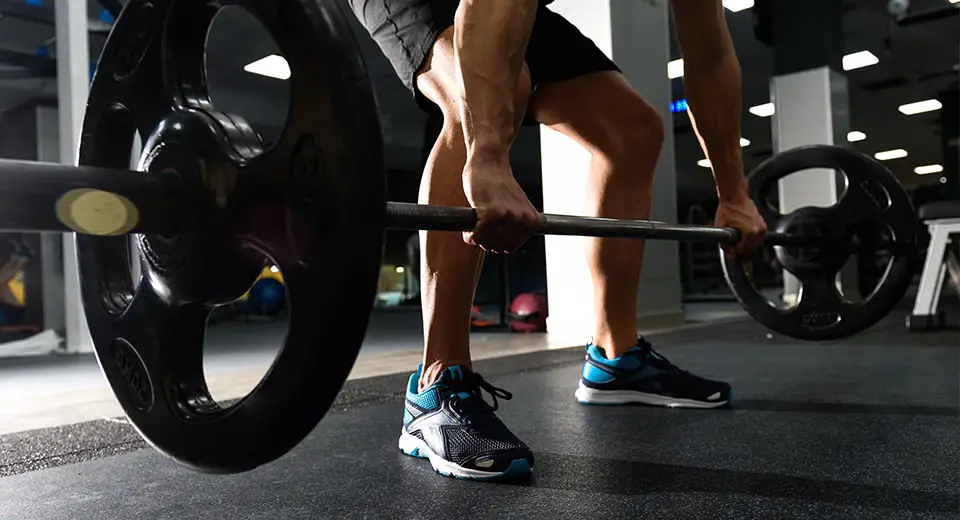
This might not be for everyone depending on how you see exercise, how you already workout, etc. But implementing resistance training might help you with your plateau.
Exercise is the single best thing you can do for your body, but people have to get it out of their heads that exercise is part of their diet. Saying that in order to lose weight you should exercise makes no sense.
To lose weight, you should change your diet, meaning how often you eat and how. Exercise is a whole other beast, as I mentioned in my complete guide on fasting and muscle building.
You shouldn’t exercise for the sole purpose of losing weight. But resistance training and building actual muscle will improve your metabolism and resting calorie expenditure.
With more muscles, your body will need more energy to function, hence you’ll burn more calories. Your body’s resting energy expenditure, meaning how many calories it needs simply to function, will increase.
If you keep to intermittent fasting and don’t change your diet much, this might boost your metabolism and help promote weight loss.
This is not exactly a quick fix though and you might be perfectly alright with the way you exercise and your body’s muscle mass right now.
8. Move Your Exercise Routine

Alright, you already have an exercise routine that you follow. You have no reason to change the way you train, it’s a perfect fit for you. Then why not try and move when you exercise?
A study was conducted to look at the effect of time of day on performance, hormonal, and metabolic response. The participants where amateur cyclists of an average age of 31.
They either performed a 1000 m TT at 8 am or 6 pm. The time of day massively affected insulin, cortisol, norepinephrine, and testosterone concentration. They were all way higher in the morning.
This resulted in more mobilized fat, increased release of fatty acids in the morning, and, overall, more fat burning.
You might think you have to train in the morning to burn fat, but evening workouts also have advantages. The optimal body temperature of strength training is around 4 pm to 9 pm.
And during this time window, your body will actually be at his higher temperature. This will improve joint mobility, glucose metabolism, and muscular blood flow, which will improve muscle activation.
We’re simply stronger when our body’s core temparature peaks.
In my complete guide on muscle building and fasting, I mentioned that you should ideally work out right before breaking a fast.
When you fast, you’ll increase insulin sensitivity. When you break the fast, insulin levels will peak. Insulin is a key hormone to muscle growth, by activating certain anabolic pathways such as mTor and promoting muscle growth through IGF-1.
You might not be able to move your exercise routine easily, but as you can see, your body’s reaction to exercise will greatly differ if you do it in the morning, before breaking your fast or in the evening or late afternoon.
The point here is that there are preferred times for working out depending on what type of training you do and your goals, but also that they all have their advantages and they’ll all affect your body in a different way.
Simply moving exercise to the morning a couple of times a week for a few weeks could be enough to stress your body, have it react differently and break a plateau.
9. Increase Proteins Intake
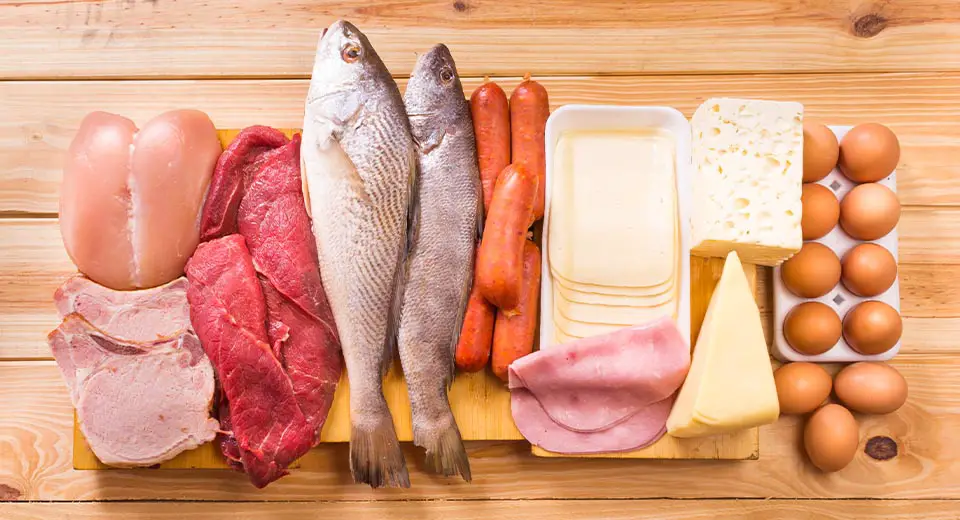
Too much protein in your meals is not necessarily good, because it could lead to a process called gluconeogenesis, in which your body will convert proteins to glucose and even store it as fat.
But getting more proteins with your meal, without overdoing it, might help to promote weight loss. Food as a thermic effect, which can increase your metabolism when your body’s digesting.
Proteins digestion boost your metabolism to up to 30%, which is more than twice as much as carbs.
In this study, a group of young women followed a diet with 30% of calories coming from proteins on one day and 15% on the next. Their metabolic rate increased twice as much on the high-proteins day.
Proteins can also reduce appetite through the production of certain hormones, such as PYY, leaving you feeling satiated faster.
To alleviate these effects the right way, you should get proteins with every meal. Experts in protein metabolism recommend daily consumption of around 100 g per day (20 to 30 grams with each meal, based on a three-meal plan).
Protein will also help preserve and build lean body mass. Muscles, as you know, will increase resting energy expenditure and help boost your metabolism too.
10. Sleep More / Better

Sleep plays a huge part in many aspects of our lives and it has a great impact on weight loss. Many studies have been conducted on the subject, it’s even been found that bad sleep could lead to more weight gain.
This review study stated that short sleep duration in children were 89% more likely to develop obesity in the long term. 55% percent for adult patients.
According to this other study, short sleep could deregulate certain hormones, reducing leptin (satiety hormone), increasing ghrelin (appetite hormone), and an overall increase in body mass index.
If you’re relatively new to intermittent fasting, you might have already struggled for energy and sleep, since this new lifestyle will impact the quality of your sleep at first, by disrupting your circadian rhythm.
These side effects will disappear after a while and when your new habit sets in, you might even experience improved sleep quality.
Sleep and energy levels will also impact your motivation and ability to exercise, your stress levels, muscle growth, etc.
If you’re hitting a plateau and sleeping 5 hours a night, I would urge you to try and get more sleep if you can.
11. Manage Stress

After sleep comes stress, which can effectively affect sleep of course and cause the different issues I mentioned above.
Stress will increase cortisol, which is known as the stress hormone. The original scenario is a caveman, wandering around in the woods, looking for food and faced with a giant bear. This will trigger a fight or flight response in the body.
First adrenaline kicks in, giving you energy and intense focus, then cortisol will go up. This raise in cortisol will help your body recover after fighting or running from the predator.
But when is the last time you felt stressed out because you were facing a grizzly? The problem nowadays is that stress is an inherent part of our life, cortisol levels keep being elevated and we never do anything to handle this natural effect.
Cortisol levels being up will signal your body to replenish some energy you should have used. This can lead to cravings and more appetite.
Even more, high cortisol seems to be linked to more fat storage, especially belly fat and especially for women.
In this 8 weeks study on overweight women, patients followed a stress-management program, including muscle relaxation and deep breathing, this led to an average of 4.5 kg weight loss.
To summarize, stress might make you eat more, increase cravings, increase fat and visceral fat, so just… don’t be stressed !
I’m not here to tell you how to reduce and manage stress, there are many ways you can do this, I’m here to make you aware that this can have a big impact on your weight loss progress.
So, you should be aware of this, think about it, and try to manage it.
Reducing stress in and of itself will also lead to many other benefits and healthier life, it won’t just help you get through your weight-loss plateau.
12. Eat More Vegetables and Fibers
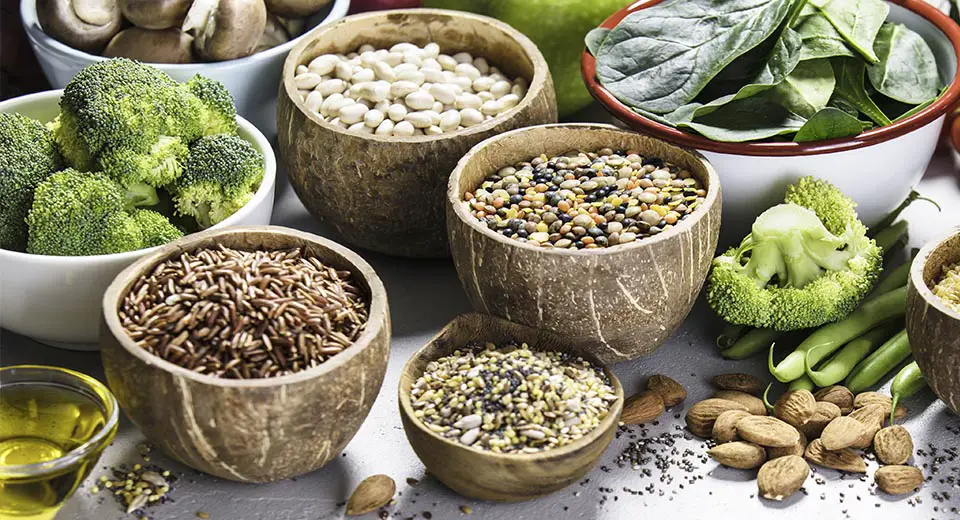
That looks like a pretty obvious tip to give. Of course, I’m not going to advocate getting fries with every meal if you want to lost weight.
But if you can’t help snacking and you feel like cravings and appetite are the main culprit in your weight-loss plateau, add in more vegetables and fiber-rich foods.
Most vegetables are pretty low carb, low-calory and you can eat a lot of them.
They’re full of vitamins and if you need to snack or if you feel like you’re not eating enough, packing on fresh vegetables won’t have too much of an impact on your weight.
Fibers are also great because they’ll help you feel satiated more quickly and good fiber in your food will lessen insulin response in the body. This will lead to less appetite and a bigger effect on weight loss.
Overall, getting more vegetables and fibers will also account for a smaller overall calorie intake.
Snack on brocoli and kale, eat dinner on oeatmeal or lentiles, and you should see great results with weight loss.
13. Drink Plenty of Water

Another “duh!” advice, you certainly already have heard it almost everywhere else on the web.
But I can’t do a whole article on weight loss plateau without mentioning water consumption, because it might not be as obvious as you think.
First, water can help you if you’re experiencing cravings. When I started intermittent fasting, I drank so much water. Because I knew it was important, but also because I had bad habits to get rid of and water helped me a lot.
I usually had an orange juice or two in the morning, some type of pastry at 9 am and a few snacks (chocolates or biscuits) in the afternoon. Water was helping me get through my fasted morning and my non-snacking afternoon.
Every time a craving came, I would gulp on my bottle. I had created a habit of drinking at least 3 liters (around 0.8 gallons) of water during the day.
And it would not only help reduce cravings I would also feel satiated from all the water I drank, especially when I had sparkling water.
Water will not only help with hunger it’ll also boost your metabolism for up to 30% for 1.5 hours after drinking it, through water-induced thermogenesis.
In this study, they looked into the effects of having water before a meal on a regular diet. On average, the group consuming water before meals lost 44% more weight than the other group.
14. Get Enough Salt And Electrolytes

When you start intermittent fasting, you might feel tired, have headaches, be light-headed, or even nauseous. And you will certainly experience some type of craving and sudden hunger.
There are many reasons for this, one of them could be a lack of electrolytes, mostly sodium and potassium, but also magnesium.
If you’re fasting and implementing some other healthy habits like cutting down on certain types of carbs, you will most likely end up consuming less salt and electrolytes than usual.
And what you may think are simple side-effects of not eating enough, often comes from not getting enough electrolytes.
I’ve already talked about my experience with a lack of electrolytes, sodium in particular while doing a prolonged fast. I remember waking up on the fourth day, feeling awful, nauseous, tired, I could barely get up to work.
It was getting so bad, that I decided to break my fast in the rightest way possible: I drank a cup of chicken broth. And recovered in under 30 minutes!
It happened again when I experimented with keto, after 5 days this time. I did the same thing with the same results.
You might often think that you’re craving for food, but sometimes you’re just craving from salt. Sure too much salt might not be great, but not enough salt is way worse.
To help you get rid of snacking in the afternoon or feeling down, try getting some salt or apple cider vinegar in your water, a chicken, or vegetables, broth to help with that.
15. Drink Green Tea and Coffee

After water, the two others go-to drinks, tea, especially green tea, and coffee. And they can do wonder for your weight loss.
Both tea and coffee are great to reduce hunger, you shouldn’t abuse it of course, but getting a coffee instead of a snack is really effective.
There is no significant evidence that caffeine induces satiety though. This study concludes that coffee intake doesn’t seem to have an impact on leptin levels (the satiety hormone), while this other study suggests that it even lowers leptin levels.
Anyway, you should try it, even decaffeinated coffee seems to work and help reduce hunger and cravings.
Caffeine, which you can also find in most teas, is known to help the process of fat burning. It could even boost the metabolic rate by up to 13% according to this study.
Inside of green tea lives a compound named Green Tea Catechins (GTC). In this study, the GTC compound has been found to have powerful antiobesity properties. Consuming from 270 to 1200 mg of GTC every day will reduce body fat.
Green tea also contains a powerful antioxidant, called epigallocatechin gallate, which, according to this study, may increase fat burning by up to 17%.
Last but not least, caffeine could increase the metabolism-boosting effect of exercise according to this other study. Caffeine will also help with overall performance and muscle power.
16. Reduce Sugar and Alcohol

This blog is called “intermittent dieter” because I really am dieting intermittently. With fasting, sure, but also during the week. It’s rare I don’t spend Friday and Saturday night with friends having drinks.
But when trying to lose weight, the first thing that has to go would be this: alcohol and sugar.
If you’re like me, you may love intermittent fasting exactly because it’s a pretty permissive diet/lifestyle. So, nothing says you can’t have a sweet now and then and have a drink with friends.
The thing is, this could be the very thing that’s preventing you losing more weight.
You shouldn’t necessarily cut those altogether. If you’re going to do that I advise you to try keto, but also to read about it and be prepared psychologically. Going no sugar is not easy.
But if you just want to break through a weight-loss plateau, why not try 2 weeks to a month without alcohol if you can? Or maybe simply only drink on Fridays, or only on Saturdays.
Again, breaking a plateau is not about huge changes, it’s more about little things that you can try to help weight-loss. I wouldn’t necessarily say reducing alcohol for a week will have much impact though.
But trying to reduce sugar consumption, through candy and drinks, by 20-30%, by simply saying no some of the times could be enough to let you achieve your goals.
As always, it really depends on how serious it is for you to reach your ideal weight and how commited you are to this.
17. Reduce Your Eating Window
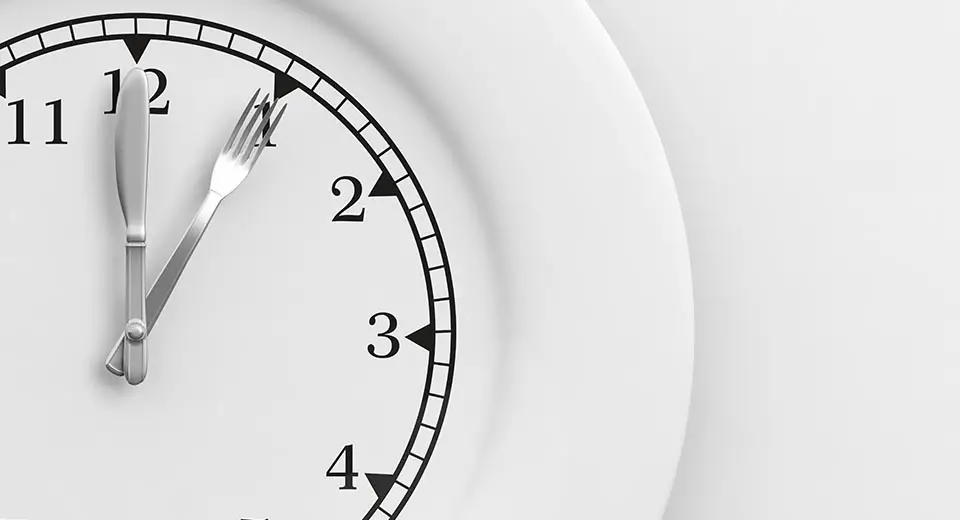
Intermittent fasting is flexible and quite permissive. If you do not want to be changing the way you eat, there’s always the solution of eating even less often.
Check out this article where I talk in depth about all the types of intermittent fasting there is.
Maybe it’s not even about reducing your eating window, maybe you could simply try another type of intermittent fasting for a while.
This will mean different habits and eating windows, and that could be enough to stress your body out of a plateau.
You’re doing 16:8 intermittent fasting or 4:3 alternate-day fasting? Try one meal a day. You’re doing one meal a day? Try some type of alternate-day IF, such as eat stop eat.
You may have found the perfect type of IF for you, and maybe it was hard getting there, I’m not saying you should throw that out the window, but if you can try adapting for a few weeks to a new type of IF.
We don’t need much science to know that going from 8 hours to 2 hours eating window will be more efficient for weight loss and can help you break through a plateau.
18. Do a Prolonged Fast
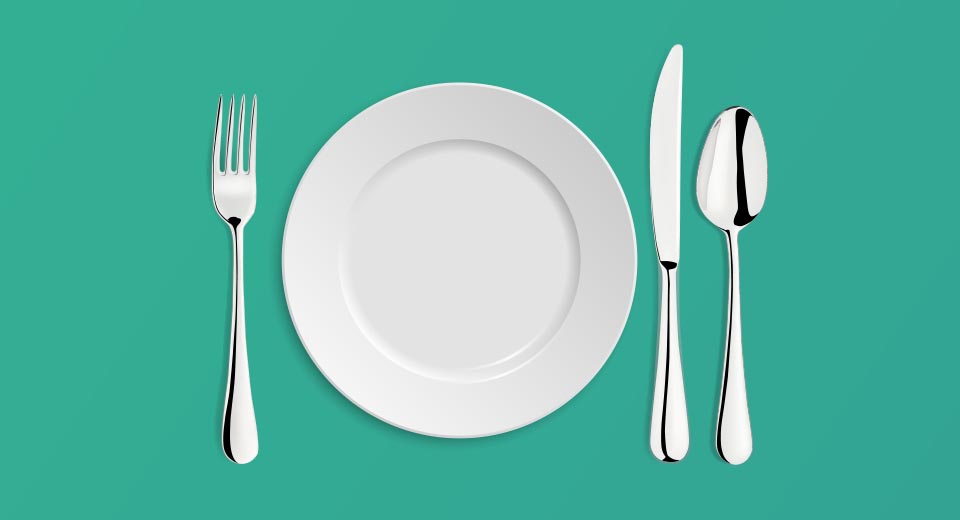
Most people freak out when I mention prolonged fast, meaning fasting for 5, 7 or even 12 days.
And it’s understandable, it can seem like quite a feat. Except once you’ve been able to do a prolonged fast, if you’re prepared psychologically, it really is not that hard. You’re already used to skipping meals anyway.
Of course, disclaimer and all, don’t just do a one week fast on the spur of the moment. You should read about it, if you have a condition talk to your doctor, etc.
But this definitely got me out of my own plateau. I talked at the beginning of how I broke through my own plateau when doing intermittent fasting.
And I broke it with a prolonged fast. I fasted for 5 days, in which I lost 5 kg (10 pounds), and then gained 1.5 kg (3 pounds) back afterward.
That did the trick for me. Since then I’ve lost the remaining weight I wanted to lose and I’ve been quite stable for more than a year now, simply by following my usual intermittent fasting routine.
Doing a longer fast can be hard, but watching those pounds go is awesome. Sure, you’ll regain a few of them, but certainly not all of it.
And of course, to end this subject, fasting and prolonged fasts are not just about losing weight. I did several days fast because I wanted to see how that felt not to eat for a few days. Could I really do it?
That experience alone, of depriving you of something you usually deem essential, is worth it. If it also kicks you out of a stupid plateau, why not?
19. Change Your Everyday Diet
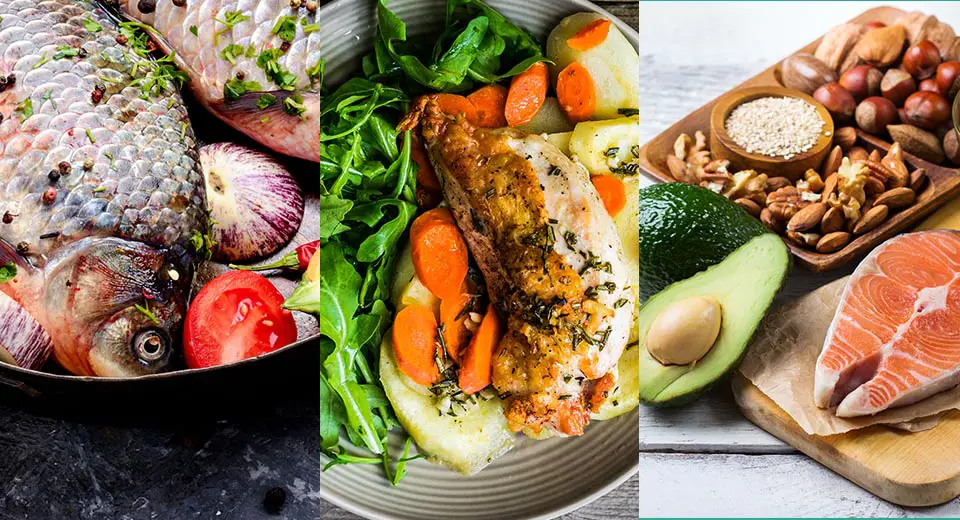
If fasting for a longer period, even if it’s just a few hours a day, ends up being too hard on you, either psychologically or socially, you can always combine IF with another diet.
In this article, I compared 8 other famous diets to intermittent fasting. You might think IF was the big winner, well, yes and no. IF is not really a diet, it’s an eating habit, a lifestyle.
So if you’re doing IF, you may think you don’t really need to be doing anything else to lose weight. Except eat kind of healthy food and trying not to get too much sugar and stuff.
But depending on your goals and how hard for you it is to reach them, why not take a look at other diets out there?
There are low-carbs diets that might freak you out like the Ketogenic Diet, because it can be hard to implement with a social life, but maybe the Atkins Diet would be easier for you?
And what about going vegan for a month? Or trying the delicious Mediterranean Diet or the great Paleo Diet?
These days, everyone seems to have created its own diet and written a book about it. Of course, don’t just do any diet out there, read articles about it, studies, and check if you could implement and if it really would work for you.
But there are tons of diets, well-documented ones, with advantages and disadvantages, most of them working, that you can pull from and try to implement in your life, at least for a while.
Find the right diet for you and add it as a bonus to your already great intermittent fasting lifestyle.
20. Go Carnivore
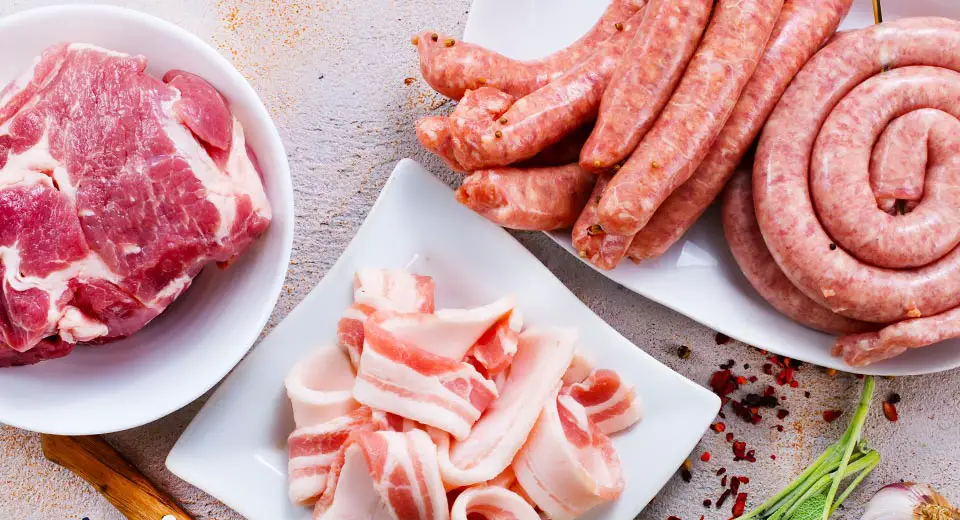
This is weird advice, I know. Depending on your beliefs, you might think that’s really bad advice and I totally understand.
The point I want to make about going carnivore is if:
- You’re plateauing with intermittent fasting and some type of low-carb diet
- You’re very strict about your diet
- You still have big sugar cravings and feel like you could eat 5 kg of vegetables just to get some carbs
Going carnivore might help you get through the addiction and the plateau. Because carnivore diet is the true zero-carb diet.
Dr. Paul Marbry, a zero-carb doctor, talk about it extensively on his own blog. His sugar addiction was so strong that even with keto, he was unable to lose more weight. Hence the carnivore-zero-carb diet.
I’m not saying you should go all-in with it and stick to this diet for the rest of your life, I’m not sure that it is a really healthy diet in the long term, there are no studies on the subject as of yet.
But if you already tried many other alternatives and they don’t seem to cut it, why not give this a go for a few weeks? This could help rid you of bad habits and break off a weight-loss plateau.
21. Stay Positive and Motivated!

My last advice may be one of the most important of the list.
Don’t put yourself down because you’re stuck in a plateau. What you’re doing is amazing:
- You have enough motivation to do intermittent fasting almost every day
- You’re able to follow some type of diet
- You already lost some weight, maybe even tons of weight
Now, you have more than 20 tips on how to go after this plateau and kicks his ass. By changing the food you eat, how often you eat, trying to improve your sleep, etc. you will be able to get through that if you really want to.
Hell, you’ve already done most of the work, you’re doing intermittent fasting aren’t you?
A plateau can turn itself into a vicious circle, because you may obsess about it. This can lead to anxiety and stress, bad sleep, a tendency for cravings, snacking, and all that won’t help you lose weight, on the contrary.
The best way to go about this is what you’re doing right now: stay cool, educate yourself on the subject, and find the motivation and the willpower to change some habits to achieve your goals.
Don’t beat yourself about it, plateau come and go, you’re doing fine.

